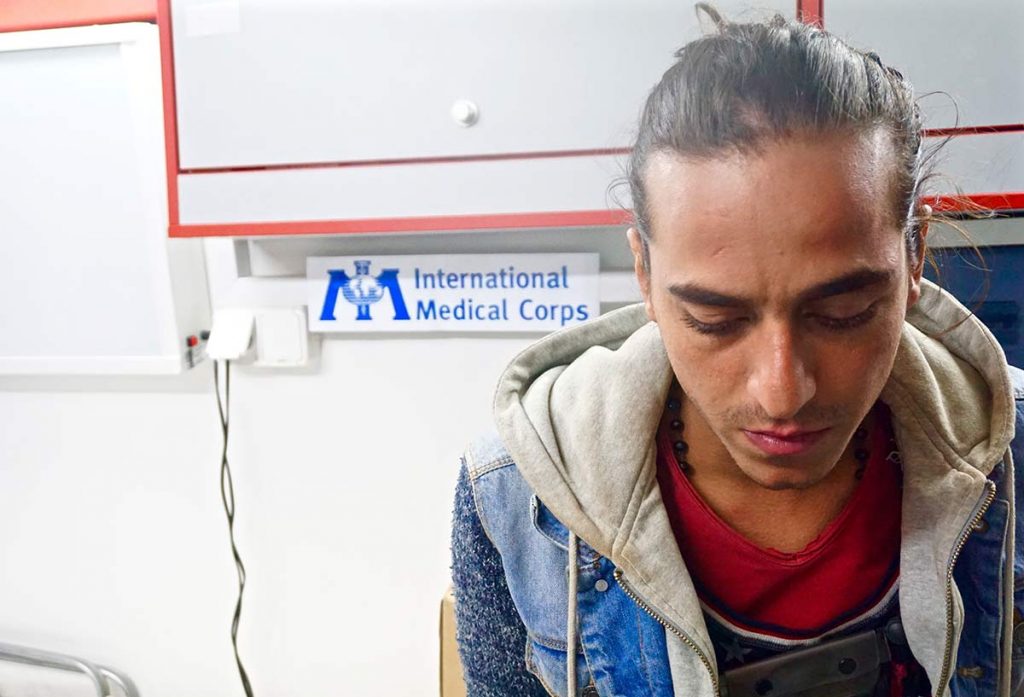When he arrived on the island of Leros, he hadn’t eaten or had any access to shelter or water for three days.
The 23-year-old Syrian had a nasty cold. The joint International Medical Corps and Praksis medical team gave him cough syrup right away and some antihistamine tablets. And that along with a dose of kindness secured their friendship. He told our team that his neighborhood in Syria had become a war zone, but his decision to leave was prompted by an order to join the Syrian army. It was a frightening prospect. He quickly bid his family goodbye and left for Turkey, alone.
He doesn’t know when he’ll see his family again or even where he’s headed, but he’s hoping his fluency in English will help him in the days and months to come. It was certainly helpful in Leros. Over the next couple of days, the amiable young man would translate for his fellow refugees and help volunteers at the camp distribute travel papers and pass along important transit information. And then, it was his time to leave.
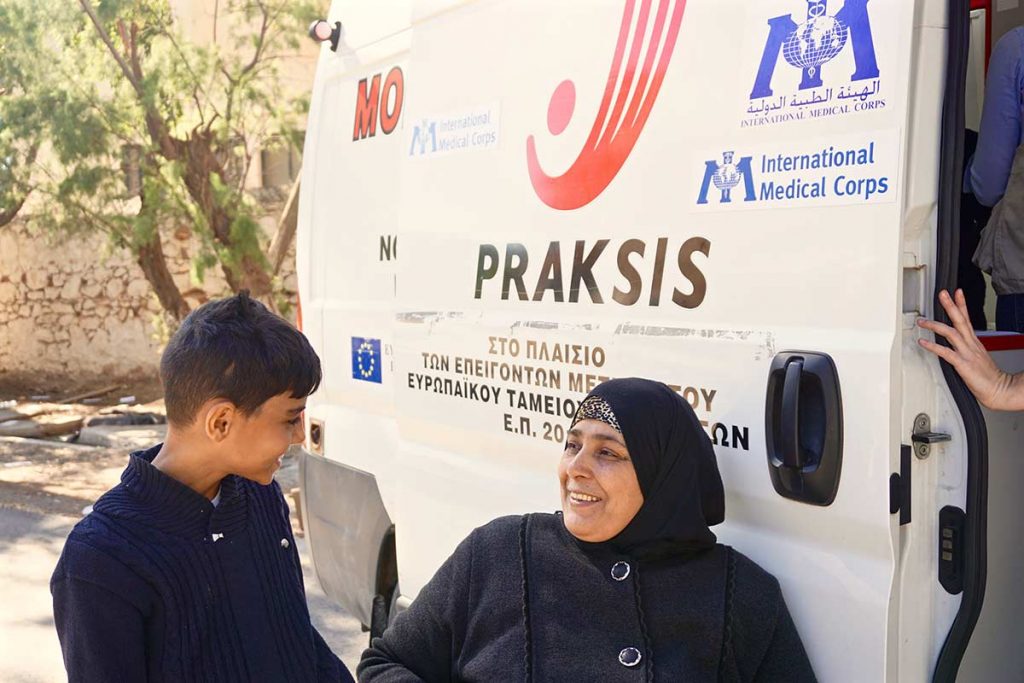
This proud grandma from Iraq also has the flu. As she waits to see the doctor she acknowledges that she’s one of the luckier ones.
Although she fled chronic violence in her native Baghdad and lived as a refugee in Turkey for three years, one of her sons fled before her, made it to Britain and has been able to financially support the family ever since.She’s traveling now with her other son and his family, destined for the UK. She paid a handsome sum to hire a proper boat to take her family across the rough Aegean Sea. She said it was money well spent, given that the risky trip had already taken the lives of so many refugees.
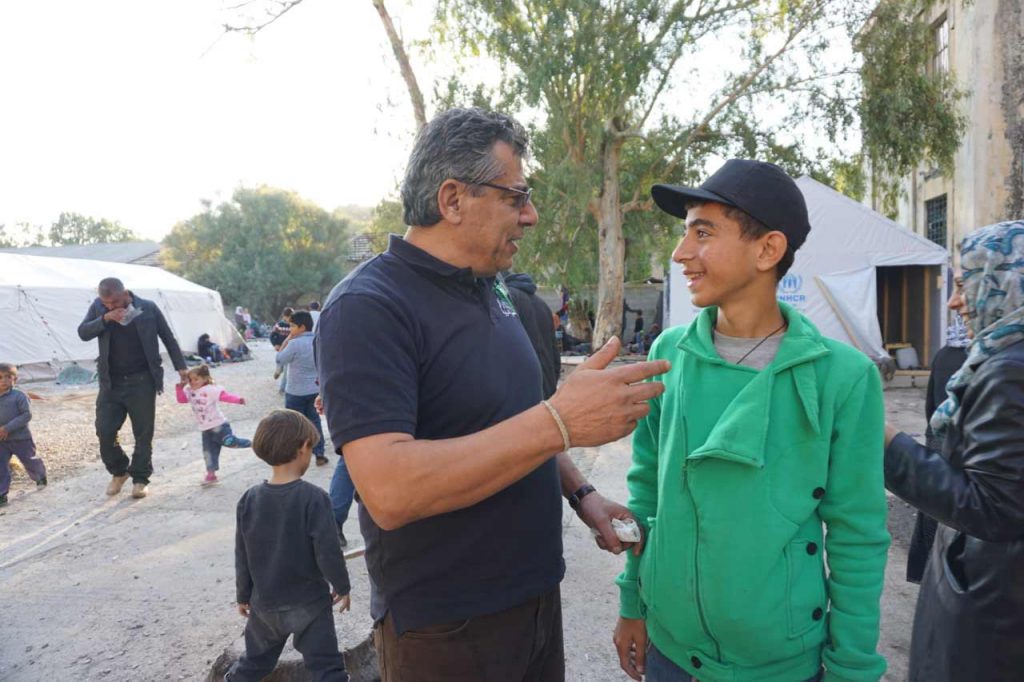
When this 16-year-old Syrian boy entered the medical van, he was shivering, frail and scared.
He had just arrived on the island of Leros by boat and was feeling sick. Because he was reluctant to share information about himself, our medical unit feared he was an unaccompanied minor. He eventually said he was traveling with family friends of his parents, but the team alerted the UN Refugee Agency (UNHCR) to his situation anyway.The next day, we checked on him in the transit camp and met the family he was traveling with to ensure he was truly under their protection. All appeared fine and he said he was feeling much better. Some cajoling from International Medical Corps’ Dr. Dimitrios Mognie even brought smiles.
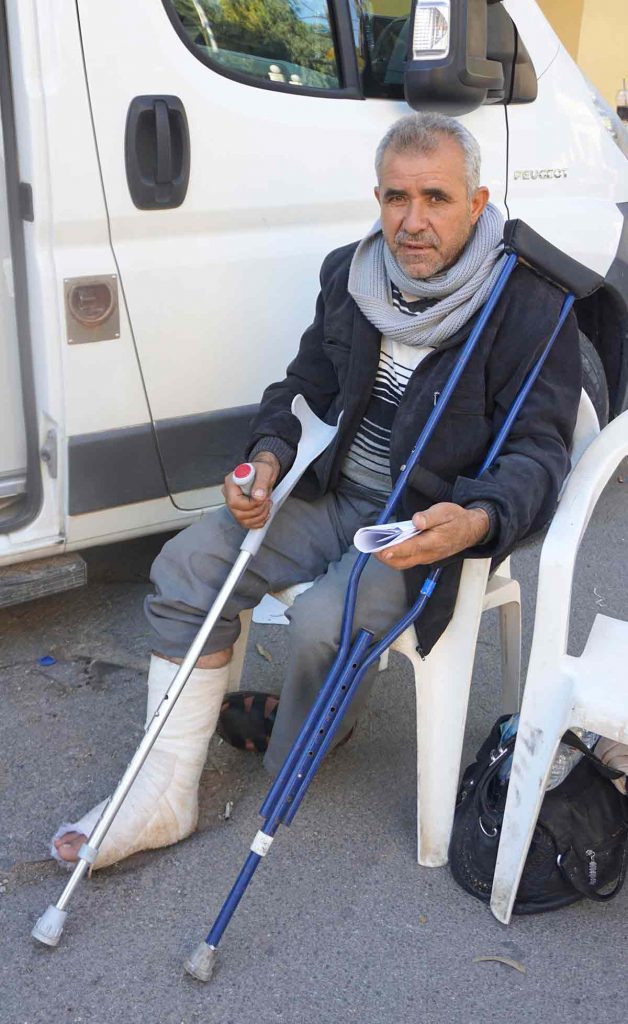
With one arm around his wife’s shoulder, and the other grasping a single crutch, this man inched his way toward the medical van.
He had taken a big tumble while crossing into Turkey from Syria, and fractured his leg. He found Turkish medics who put on a cast, but it became soaked during the boat journey to Greece, was falling apart and offering no support. The International Medical Corps and Praksis medical team asked local volunteers if they could find him proper crutches and within minutes, they were able to produce one, left behind by another refugee. While not perfect, it certainly was helpful.The medical team accompanied the man to a local hospital to get an x-ray, and again the following day to meet with an orthopedist. The physician replaced his cast but told him he was at risk of thrombosis and that the facility lacked the medicines he needed. Unable to find the drugs on the island, our medical unit could only refer him to a clinic in Athens where he could get free medical care. And then they went to see him and his wife off at the ferry. It was an emotional good-bye.
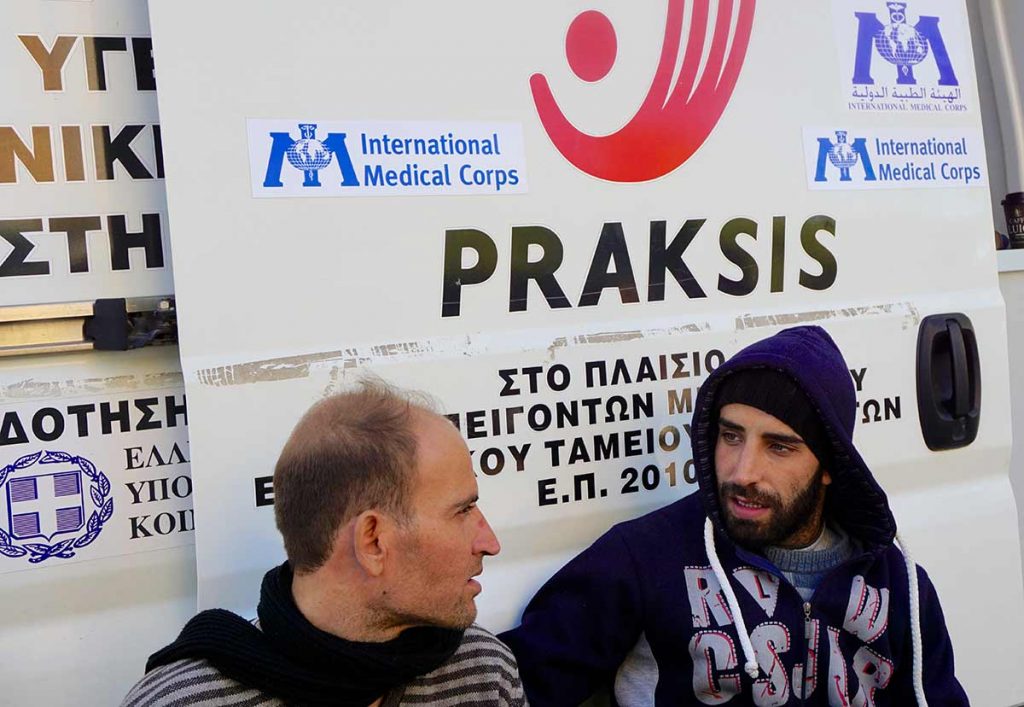
Two young men from Syria wait to see a doctor and begin swapping stories.
The refugee to the left had spent the past three days nearly blind. He lost his glasses on the turbulent boat ride from Turkey. He was struggling to see and relying on his family to help him navigate. The other had badly cut his foot. The boat that he was in had capsized, and while attempting to save two children, he had injured himself. They manage to find some humor in their bleak situation, and make each other laugh.
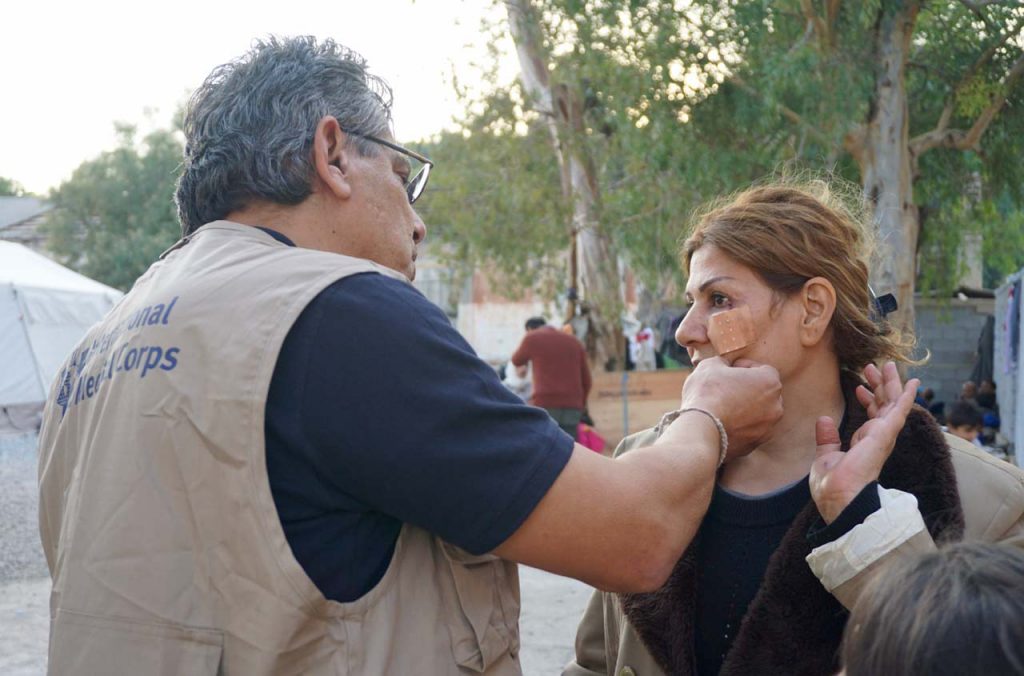
Eighteen years ago, shortly after her son was born, her husband left for Germany.
The intention at the time had been for her to join him when he had settled in, was employed and able to set up a home for them. But years went by and she was increasingly hesitant to leave her family and a teaching job that she loved. Once the war started, she and her son were trapped and leaving became difficult. But some months ago, they decided they had no choice but to try.She said the boat journey that eventually landed her in Leros was harrowing and when she finally disembarked, she fell head first onto rocks, cutting and bruising her face. Days later, our medical team examined her, disinfected her wounds, changed her bandages and gave her pain medication. The following day, Dr. Dimitrios Mognie checks in on her. She jokes that she’ll be seeing her husband for the first time in 18 years with a swollen and battered face, not exactly what she had in mind for a romantic reunion.
When he arrived on the island of Leros, he hadn’t eaten or had any access to shelter or water for three days.
